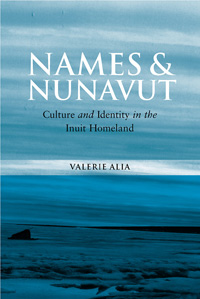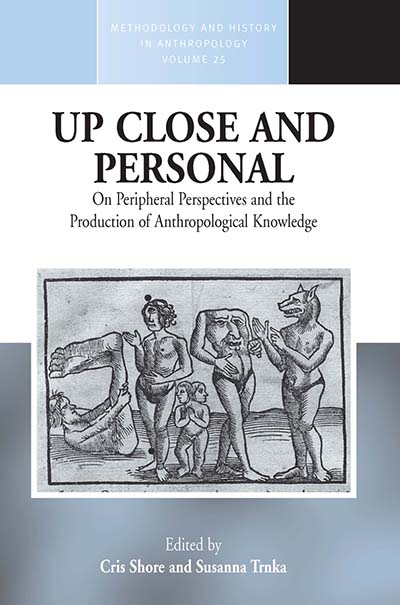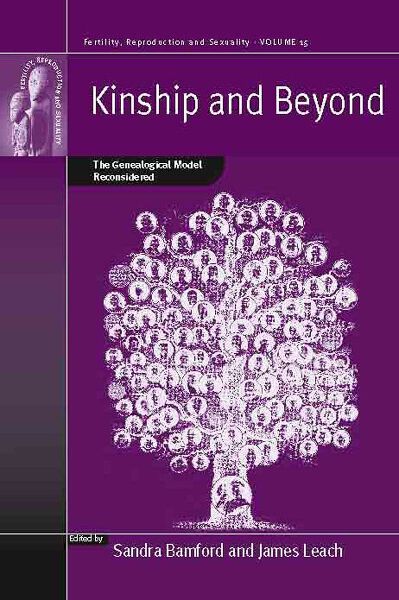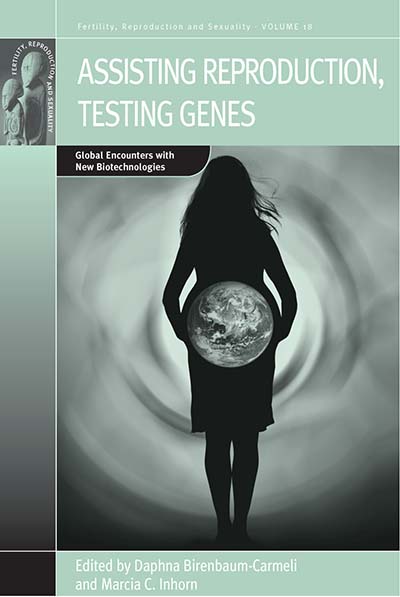
See Related
Anthropology JournalsEmail Newsletters
Sign up for our email newsletters to get customized updates on new Berghahn publications.
Names and Nunavut
Culture and Identity in the Inuit Homeland
Valerie Alia
208 pages, 10 illus., bibliog., index
ISBN 978-1-84545-165-3 $135.00/£104.00 / Hb / Published (November 2006)
ISBN 978-1-84545-413-5 $34.95/£27.95 / Pb / Published (December 2008)
eISBN 978-0-85745-849-0 eBook
NOMINATED FOR THE PIERRE SAVARD AWARD
Reviews
“…a thought-provoking book. Alia lays out the intricacies of Inuit naming so clearly, describes the Arctic environment so vividly, and conveys such a rich sense of Inuit values, concerns, and humour that readers are likely to hunger for more information and to pose ethnographic and on mastic questions that press forward the horizons of Inuit ethnography. Names and Nunavut is a welcome addition to Arctic ethnography and should be of interest not only to linguists and anthropologists working in the Arctic but to anyone interested in the relationship between onomasty, personhood, and cosmology and to anyone looking for fresh insights to the micropractices of linguistic and onomastic colonialism" · NAMES: A Journal of Onomastics
“The author has achieved an important and remarkable contribution to scholarship with her book.” · Namenkundliche Informationen
"Embedded within this nuanced and extraordinarily well-researched account of the political onomastics (the politics of naming) involved with Inuit (colonial) history are an abundance of theoretical, ethical and political insights into both the complex nature of the Inuit and their evolving engagement with Qallunat (non-Inuit, Euro-Canadian), as well as the complex nature of engaging in such research. This publication, refreshing in its focus on extensive local community research, delves into the complicated dynamic between colonial administration and its effects on the culture and identity of the Inuits." · British Journal of Canadian Studies
“[The book] is very readable and helps to overcome the euro-centric perspective concerning the significance of names in the political conflicts of the twentieth century... A person’s name is closely linked to current human rights debates, and by analyzing this aspect from a global perspective Valerie Alia’s book offers an important and impressive contribution.&rdquo · Journal of Onomastics
Description
On the surface, naming is simply a way to classify people and their environments. The premise of this study is that it is much more — a form of social control, a political activity, a key to identity maintenance and transformation. Governments legislate and regulate naming; people fight to take, keep, or change their names. A name change can indicate subjugation or liberation, depending on the circumstances. But it always signifies a change in power relations. Since the late 1970s, the author has looked at naming and renaming, cross-culturally and internationally, with particular attention to the effects of colonisation and liberation. The experience of Inuit in Canada is an example of both. Colonisation is only part of the Nunavut experience. Contrary to the dire predictions of cultural genocide theorists, Inuit culture — particularly traditional naming — has remained extremely strong, and is in the midst of a renaissance. Here is a ground-breaking study by the founder of the discipline of political onomastics.
Valerie Alia was an award-winning independent scholar, writer, and Professor Emerita, based in Toronto, Canada. She was Senior Associate of the Scott Polar Research Institute, Cambridge University, Distinguished Professor of Canadian Culture at Western Washington University, and Running Stream Professor of Ethics and Identity at Leeds Metropolitan University. She was also a television and radio broadcaster, newspaper and magazine writer and arts reviewer in the US and Canada. Her books include: Un/Covering the North: News, Media and Aboriginal People; Media Ethics and Social Change; Media and Ethnic Minorities; and The New Media Nation: Indigenous Peoples and Global Communication. She was a founding member of the International Arctic Social Sciences Association and founded the sub-discipline of political onomastics, the politics of naming.




